MercoPress. South Atlantic News Agency
Stories for 2008
-
Monday, January 28th 2008 - 20:00 UTC
Chile behind Norway as world's leading salmon producers

According to recently released industry data, Chile maintained its status as the world's second largest famed salmon-producer in 2007, although salmon production decreased by about three percent from 2006.
-
Monday, January 28th 2008 - 20:00 UTC
Lively discussion of Falklands' deep-water port options
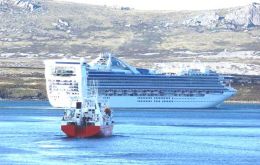
Port William outside of Stanley Harbour is proving a popular option with the Falkland Islands business community for a future deep-water port, however environmentalists are less enthusiastic.
-
Monday, January 28th 2008 - 20:00 UTC
Brazil plans to build nuclear sub with French technology
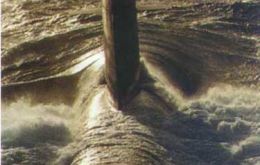
Brazil is seeking to acquire military technology from France that could help it become the first country in Latin America to have a nuclear submarine, the Defense Ministry said on Monday.
-
Monday, January 28th 2008 - 20:00 UTC
Regional committees downgrade Latam growth prospects
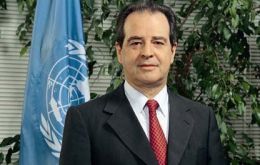
The United Nations Economic Committee for Latinamerica and the Caribbean, Cepal and the Andean Promotion Corporation, CAF downgraded their prospects for the region's growth this year fearing the impact of a recession in United States.
-
Sunday, January 27th 2008 - 20:00 UTC
No licence to krill trawl creates new partnerships
Five Norwegian companies, presently unlicenced to trawl for krill in Antarctica, have had their requests to do so turned down by the Norwegian Directorare of Fisheries. The five companies locked out of said fishing are Andre VÃÂ¥gsholm, Henning Veibust, Norway Krill Company Ltd, Olympic/Stig Invest and the Fish Group of Norway.
-
Sunday, January 27th 2008 - 20:00 UTC
Oil discovery to double Argentine Patagonia production
Argentina's Patagonian hydrocarbons rich province of Chubut announced this week the discovery of new oil deposits that will help double the province's production, anticipated Governor Mario Das Neves.
-
Sunday, January 27th 2008 - 20:00 UTC
Less hake volume and lower squid prices hit Argentine exports
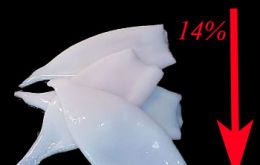
Argentina fisheries exports dropped in volume and value in 2007 according to the latest release from the country's Nacional Food Safety and Quality Service (SENASA). Exports totaled 505.794 tons of fish and shellfish valued 1,027 billion US dollars which is 13% and 14% below 2006.
-
Sunday, January 27th 2008 - 20:00 UTC
South Georgia icefish fishery seeks certification

A South Georgia fishery has become the 50th fishery currently undergoing public full assessment under the Marine Stewardship Council (MSC) standard for sustainable and well-managed fisheries.
-
Sunday, January 27th 2008 - 20:00 UTC
Peru became in 2007 Chile's main foreign investment attraction
Chile's foreign direct investment in 2007 reached its highest level in the past 10 years, according to the Santiago Chamber of Commerce (CCS). Of 4.689 billion US dollars in Chilean capital invested outside Chile, 26%, or 1.236 billion dollars, ended up in Peru.
-
Sunday, January 27th 2008 - 20:00 UTC
Chavez claims US and Colombia planning war provocation
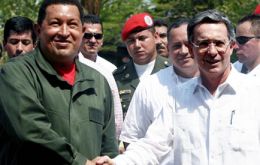
Venezuelan President Hugo Chavez claimed that United States and Colombia were plotting an incident that would spark a war with Venezuela. The charges, supported by alleged troop movements in the border area caused fear among the civilian population of the neighboring countries.
